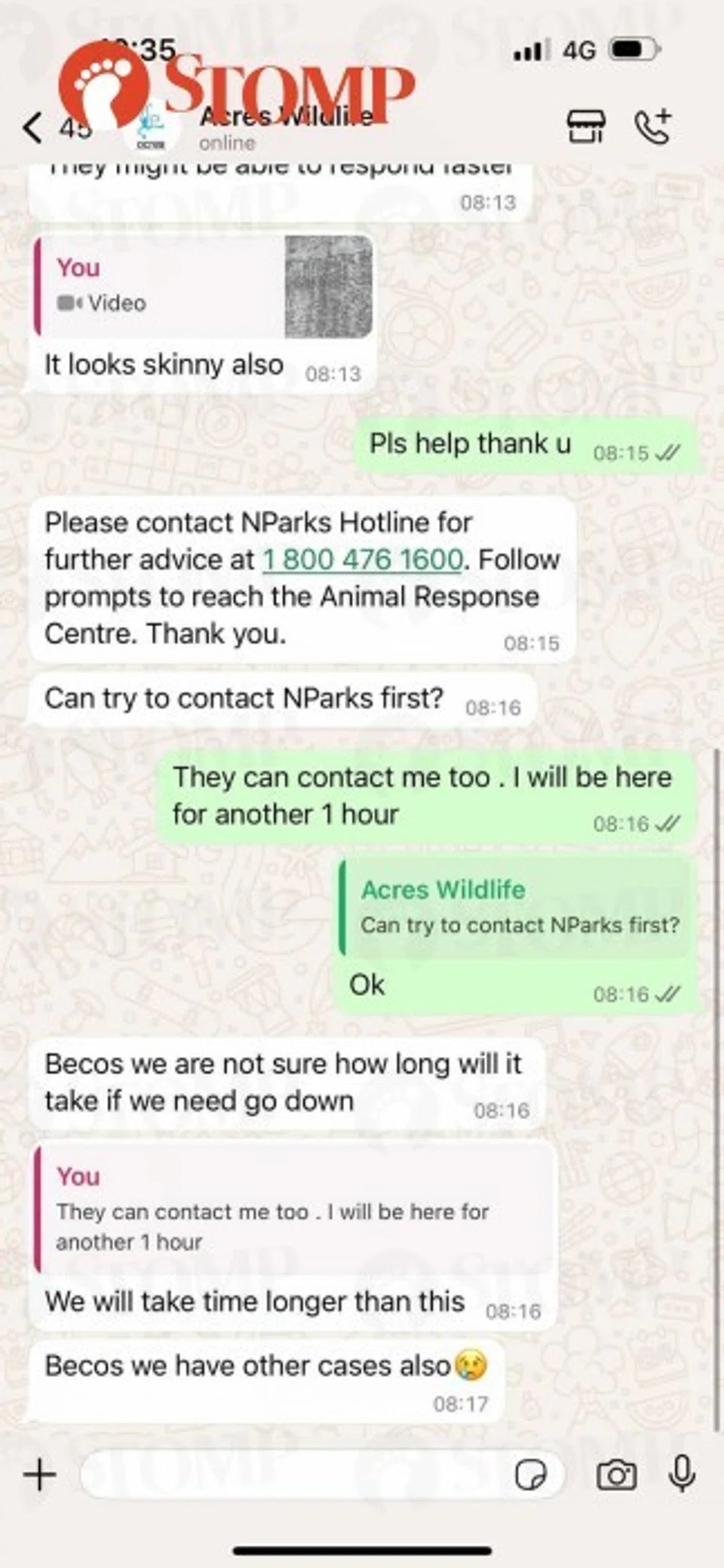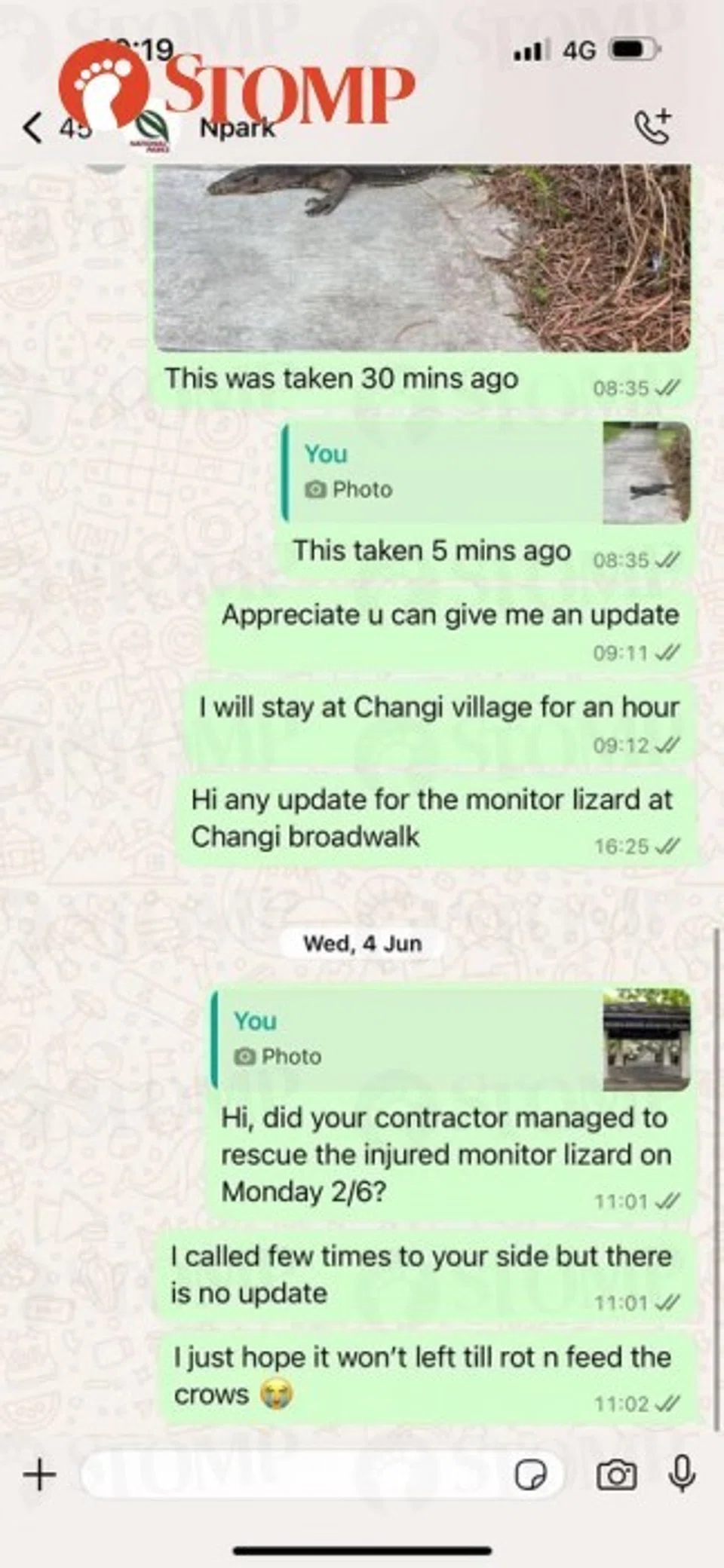Injured monitor lizard sighted at Changi Point Coastal Walk, NParks unable to locate it
Update on July 15:
Stomper thankful NParks located injured half-blind monitor lizard in Changi and treating it
Original article:
A woman spotted an injured Malayan water monitor at Changi Point Coastal Walk at about 8am on June 2.
Stomper Karyn said the lizard was still alert and moving, and that its left arm and leg "looked dislocated."
In a video Karyn sent to Stomp, the lizard's limbs appear to look mangled, and one of its feet seems swollen.
Karyn reported the heartbreaking sight to Wildlife rescue group Animal Concerns Research and Education Society (Acres), who referred her to the National Parks Board's (NParks) Animal Response Centre.
Acres told her that NParks would likely be able to respond to the situation faster than they would.

Karyn told Stomp: "I messaged and called NParks numerous times. They got back to me at 11.30am, saying a contractor would assist."
However, the Stomper learned that the contractor hadn't attended to the lizard.
She said: "I followed up with calls for the next few days, but the customer service replied saying there were no updates.
"There were also no replies on WhatsApp."

According to the Stomper, an NParks officer called her on June 11 and said he went to the area where the lizard was sighted a week after her initial report, as his contractor did not attend to the lizard.
He said there was no sight of the reptile.
Karyn told Stomp: "I'm curious why the contractor didn't attend to the lizard, and didn't follow up until a week later. Do they think the injured lizard can survive in this state?"
In response to a Stomp query, Acres co-chief executive Kalai Vanan Balakrishnan said they received a call regarding a possibly sick or injured water monitor lizard.
"At the time, we were attending to several pending rescue cases, and as a charity operating with only one rescue vehicle, we were unfortunately unable to respond within the one-hour window the caller was available to wait.
"Given our limitations and the need to preserve resources where possible, we generally only attend cases where the animal can be monitored till our arrival. In our experience, many such cases involve animals that are either uninjured or move off before our arrival, making it difficult to locate them once on-site.
"We diverted the case with the hope that NParks would be able to respond more promptly and ensure the welfare of the animal."
Stomp has contacted NParks for more information.

See something interesting? Contribute your story to us.
Explore more on these topics


